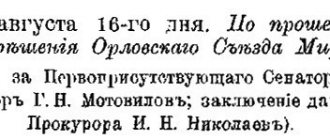The Supreme Court requires that civil claims of victims be resolved in criminal proceedings, and not in civil ones
On June 30, the Plenum of the Supreme Court discussed the draft resolution “On the practice of courts considering a civil claim in a criminal case” via web conference. Following the meeting, the document was sent for revision.
Judge of the Supreme Court of the Russian Federation Svetlana Shmotikova spoke about the most significant provisions of the project: “The main message of the explanations of the project as a whole is that the courts, in all cases where by force of law there are grounds for resolving the claim filed by the victim on the merits in a criminal case, take this into account all possible measures."
Right to file a civil claim
Moscow AP lawyer Valery Sarkisov noted that the draft resolution enshrines both approaches to the institution of civil action in criminal proceedings that have already been developed in practice, as well as a number of provisions that are controversial from the point of view of legal theory, but important for law enforcement. “Thus, the Supreme Court introduces a novelty, which, although it contradicts the basic principles of the civil law institution of compensation for harm, looks quite justified from the point of view of procedural economy: in paragraph 2, state unitary and municipal enterprises and institutions are assigned the right to file a civil claim in case of a crime causing damage to property that is in their use, possession and disposal, but is not their property,” he said.
Clause 3 notes that in claims for compensation for property damage and compensation for moral damage caused to a minor, declared on his behalf by a legal representative or prosecutor, recovery is made in favor of the minor himself.
In paragraph 4, the developers remind you that both lawyers and other persons authorized in accordance with the Civil Code to represent the interests of the organization, including its head, are allowed to represent a legal entity recognized as a civil plaintiff in a criminal case.
It is emphasized that, as a general rule, the accused is involved as a civil defendant (clause 5 of the draft). However, in cases where the law imposes the obligation to compensate for harm on a person who is not the causer of the harm, such a person is brought in as a civil defendant (for example, an organization if the harm was caused by its employee in the performance of his job duties). “In this regard, special attention is deserved by the clarification of the possibility of involving a financial body acting on behalf of the treasury as a civil defendant in the commission of official crimes,” Valery Sarkisov emphasized.
Lawyer of the Nizhny Novgorod Regional Bar Association Alexander Nemov drew attention to the fact that the draft resolution directs the courts to independently involve as a proper defendant a person who is obliged by law to bear responsibility for compensation for damage. “Previously, in practice, the opposite was very common: the court left the statement of claim without consideration, inviting victims to apply for compensation for harm through civil proceedings. This is clearly a positive aspect of this project,” he explained.
Lawyer of MCA "Knyazev and Partners" Alexey Serdyuk noted that the Supreme Court in paragraph 5 of the draft reflected cases not related to legal representation, when the accused, as a person who directly caused damage to the victim, is not identified with the civil defendant, i.e. person obligated to compensate for said damage. “If a crime was committed by an employee of an organization in the performance of work duties, the damage is compensated by a legal entity, in transport crimes - by the owner of the vehicle, by an official - by the authorized financial body of the state. This position is consistent with regulatory legislation and generally deserves support,” the expert said.
Subject of the claim: property and moral damage
For property damage subject to compensation, including in the absence of charges under Art. 167, 168 of the Criminal Code also includes harm resulting from the actions of the perpetrator, when the destruction or damage of someone else’s property was part of the method of committing the crime, as indicated in paragraph 7 of the draft.
Moreover, in criminal cases of theft (Article 166 of the Criminal Code), property damage caused to the victim by subsequent theft, destruction or damage to the stolen car by unidentified persons is subject to compensation by the person who committed the theft, if it is proven at the court hearing that this person created by his criminal actions conditions for causing such property damage. “The issue of civil liability of a vehicle thief has been controversial in practice. The proposed resolution closes this issue: the person who stole the car will be held responsible for the subsequent death of this car,” commented Alexander Nemov.
If property damage is caused to a person whose property is insured, then if the court has information about the insurance compensation received, damages exceeding the amount of the insurance payment are subject to recovery. In such cases, there is no requirement to involve a representative of the insurer in the proceedings (clause 8 of the draft). “I think this will lead to controversial situations, since insurance companies often unreasonably underestimate compensation payments. The procedure proposed in the draft may lead to partial release of insurance companies from liability,” says Alexander Nemov.
According to Alexey Serdyuk, the Supreme Court proposes to broadly interpret the harm directly caused by the crime, and does not limit it to damage that affects the qualification of the act. “For example, in a civil claim, not only direct actual damage from theft can be claimed, but also damage caused by the method of committing the crime - destruction or damage to someone else’s property (broken glass in a window during burglary). At the same time, it must be remembered that the purpose of satisfying a civil claim is to restore the rights of a person who was harmed as a result of a crime, which means that if a person has received compensation from another source, it is impossible to demand repeated compensation from the civil defendant in criminal proceedings. As follows from paragraph 8 of the draft, if there is insurance compensation that fully covers the damage caused by the crime, there is nothing left to demand from the accused (civil defendant), ”the lawyer noted.
About the plaintiff
The Plenum of the Supreme Court draws the attention of the courts to the fact that both individuals and legal entities have the right to file a civil claim within the framework of a criminal case. In this case, citizens can file an additional claim (for compensation for moral damage).
State and municipal enterprises can also file a claim. Or they may not file, and then the prosecutor will do it for them. The state prosecutor also has the right to file a claim in the interests of the minor victim if his representatives do not do so.
At the same time, the Prosecutor General’s Office was denied an amendment that would have provided for the right of public legal entities (for example, constituent entities of the Russian Federation) to file a civil claim independently, on their own behalf.
In one process
The Plenum of the Supreme Court orders courts to take “exhaustive measures” to resolve a civil claim on its merits immediately upon rendering a guilty verdict.
Courts should not unreasonably refer the issue of the amount of damages in a civil claim to civil proceedings.
If the court needs time to calculate the amount of compensation for the claim, then it should adjourn the hearing rather than transfer the claim for separate consideration in civil proceedings.
About the defendant
As a general rule, the defendant in a criminal case acts as a civil defendant. If the law imposes the obligation to compensate for harm on someone else, that person must be involved - a specific individual or legal entity.
For example, in claims for crimes related to harm caused by an employee of an organization in the performance of work duties, the court must hold the employer (legal entity) as a defendant. And the owner of the car must be brought as a defendant in the case of causing harm as a result of an accident.
By the second reading, the Plenum clarified that those who unlawfully took possession of someone else’s property should also be defendants in a civil suit, even if other people have destroyed or damaged this property. The legal department of the president and the Prosecutor General’s Office insisted on this amendment, Shmotikova said.
Lawyer-representative
Lawyers and other persons with appropriate authority are allowed to represent a legal entity recognized as a civil plaintiff in a criminal case.
The powers of the representative must be confirmed by a warrant, if the interests of the legal entity are represented by a lawyer, or by a properly executed power of attorney.
Documents will also be needed in cases where the legal entity’s representative in court is its director. He must confirm the status of the manager and the fact of vesting such powers.
Lock fees
The Supreme Court emphasizes that defendants must compensate for damages not only to the property that is specified in the charge. You should also take into account damage to alarm or video surveillance devices, lock picking, damage to a door or window when entering a room, damage to a car for the purpose of stealing it. In general, you will have to pay for all actions that were part of the method of committing the crime.
If the damage caused by the crime was insured, then the defendant must reimburse only that part of the plaintiff’s expenses that the insurance company did not cover.
Moral injury
The Plenum emphasizes: when determining the amount of compensation for moral damage, courts must take into account several factors:
the nature of the physical or moral suffering caused to the victim, associated with his individual characteristics;
the degree of guilt of the defendant, his financial situation;
other specific circumstances of the case influencing the court's decision on the claim.
In all cases, when determining the amount of compensation for moral damage, the requirements of reasonableness and fairness must be taken into account.
If the court finds signs of illegal or immoral behavior in the actions of the victim, it can take this into account and reduce the amount of compensation for moral damage.
Judgment following the verdict
The Plenum does not exclude the possibility of discussing during a court hearing in a criminal case and during the debate between the parties issues related to the civil claim brought in the case, even if the criminal case is considered in a special manner.
When rendering a guilty verdict, the court may decide to satisfy the civil claim. This is possible if the claims arise from an accusation that the accused has agreed to, and there are no other obstacles to the court resolving the claim on its merits.
Recognition does not mean satisfaction
If the civil defendant admitted the claim, this does not mean that the court should “automatically” satisfy it. The judge must understand the circumstances of the case, examine the evidence, and only then make a decision on the civil claim.
“The presence of property and moral damage caused by the crime, the nature of this damage and the amount of claims to be satisfied, the court establishes on the basis of the totality of all the evidence examined at the court hearing and cited in the verdict,” the Supreme Court emphasizes.






